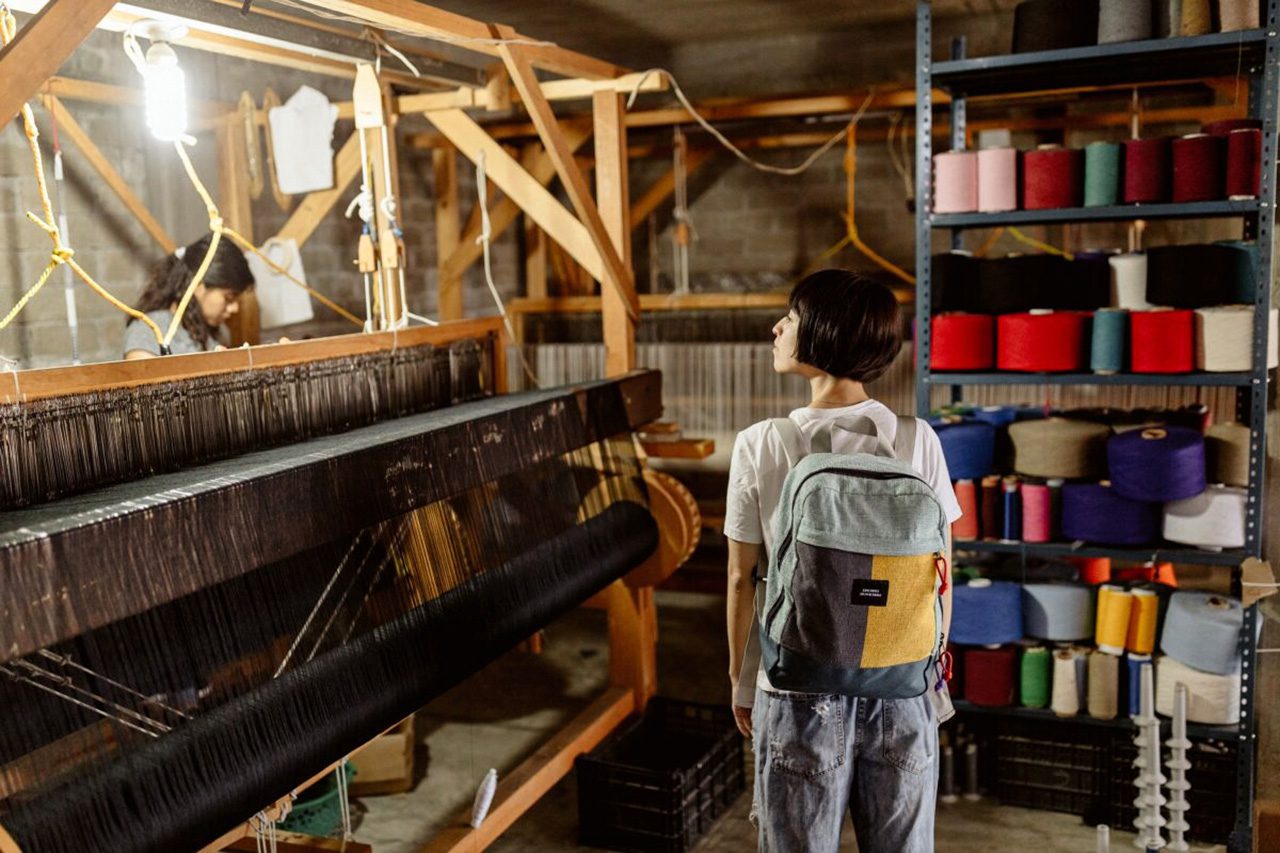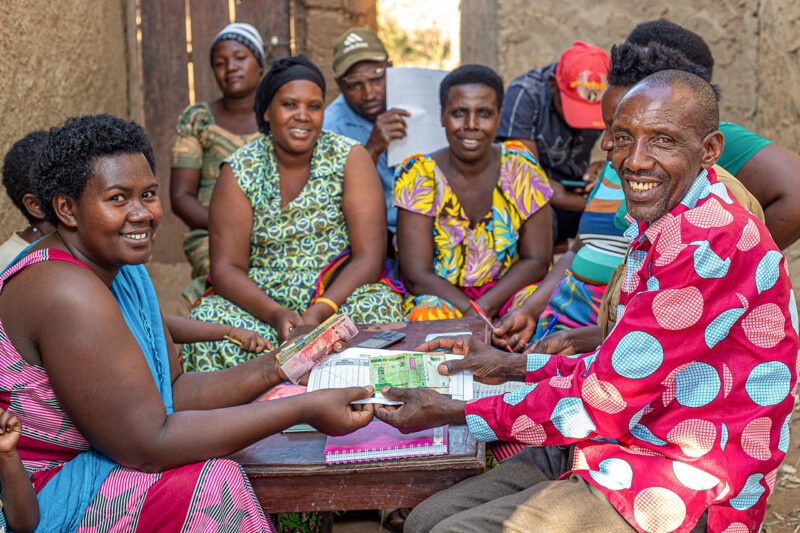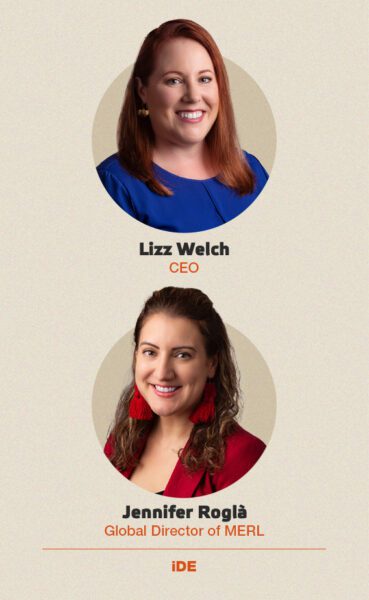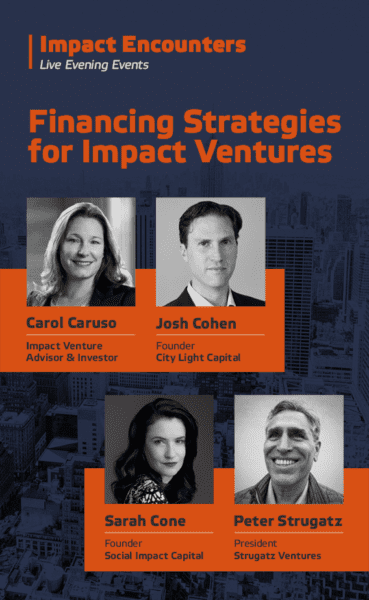Rethinking Copyright in the Age of Generative AI
Striking a balance between incentives and innovation

Someone Somewhere combines traditional artisan techniques with innovative and sustainable designs in Mexico
When you envision corporate supply chains, does your mental picture include social enterprises? Likely not, and that’s a missed opportunity for both sides of the equation.
For social enterprises, tying into corporate supply chains can help them grow, scale their impact, and reach new markets. For corporations, integrating social enterprises into their supply chains through social procurement can help them achieve corporate social responsibility (CSR); environmental, social, and governance (ESG); and diversity, equity, and inclusion (DEI) goals.
To tease out the opportunities and challenges for both corporates and social enterprises, we recently convened an online “Social Entrepreneurship & Corporate Supply Chain Panel” that included representatives from Chevron, SAP, and three alumni of Miller Center for Social Entrepreneurship programs. Here are some highlights from that vibrant, thoughtful discussion.
The umbrella under which corporate supply chains and social enterprises come together is known as social procurement, which the Network for Business Sustainability defines as, “when companies buy from suppliers that create a positive impact on society.”

Grameen Foundation invests in the power of women to break the cycle of poverty
Among corporate respondents surveyed by Yunus Social Business about working with social businesses:
“There’s a powerful role for social enterprises to add value to corporates in designing products and in last-mile delivery,” said Galen Welsch, co-founder and CEO of Jibu, a social enterprise that sources, trains, and finances African entrepreneurs to solve the drinking water crisis.
The benefits of social procurement to social enterprises include everything from stable revenue streams and smoother cash flow to valuable contacts, greater visibility and credibility, and influence over corporate priorities.

Jibu’s franchising model capitalizes and equips emerging market entrepreneurs across Africa
While the mutual benefits are clear, the logistics of actually working together can be littered with obstacles.
Many social entrepreneurs we work with are interested in understanding how they can fit into corporations’ existing supply chains and where to start.
“There’s a lack of information on the social enterprise side around what corporate supply chains exist, what value they can add to social entrepreneurs — and what value social enterprises can add to corporations,” said Jibu’s Welsch. “At the corporation level, it’s common knowledge who operates where and how, but at the social enterprise level, especially in emerging markets, we just don’t have much exposure to that basic information.”
In her role as president and CEO of Grameen Foundation, Zubaida Bai has found that their women-led projects in last-mile agriculture and health care have faced challenges integrating into corporate supply chains. “Based on my experience, it has been very hard to get corporates to work with early-stage companies or early-stage innovators with technologies,” she said.
While the mutual benefits are clear, the logistics of actually working together can be littered with obstacles.
Panel representatives from SAP and Chevron explained that every organization in their supply chain needs to meet rigorous standards for quality, volume, timeliness, and other parameters. For smaller or less-established social enterprises, these requirements can be too steep.
“Unfortunately, a lot of social enterprises aren’t yet ready to engage with corporates in a business relationship from a procurement perspective,” said Alexandra van der Ploeg, head of Corporate Social Responsibility at SAP. “At the same time, corporates are also sometimes not ready to engage with social enterprises due to antiquated procurement guidelines, practices, and procedures that don’t fit with a social enterprise environment.”
Corporations involved in social procurement offer various avenues for social enterprises to engage with their supply chains.
Timothy McCarthy, Chevron Australia’s general manager for Supply Chain Operations, noted that globally, Chevron has a commitment to build local supplier capacity and reflect diversity in its supplier base. He pointed out that Chevron Australia leverages the ProjectConnect and ICN Gateway websites to advertise upcoming procurement and contract opportunities.
I encourage corporations to engage with more social enterprises and make it easier for them to become aware of the opportunities.
According to SAP’s van der Ploeg: “We focus primarily on helping build capacity for social enterprises, so they can run their operations better and increase their environmental and social impact. SAP’s 400,000+ customers globally all have ESG and sustainability goals. We believe that social enterprises play a fundamental role in enabling them to achieve those goals.”
Accelerators and other members of the social entrepreneurship ecosystem can also act as bridges between corporations and social enterprises.
“Chevron has funded programs with Miller Center for three-and-a-half years, and I’ve seen the power of these programs to help social enterprises develop in such a way that there’s a better chance they can engage with larger supply chains,” said Dee Bourbon, senior social investment advisor at Chevron.
Someone Somewhere, a Certified B Corporation, works with artisans — 98% of whom are women — in five of Mexico’s poorest states to create products using traditional techniques. In 2022, they established a partnership with Delta Airlines.
“Delta approached us with the desire to respond better to their customers,” said Nadine Abdallah, head of Growth/Partnerships at Someone Somewhere, which provides sustainable, ethically sourced amenity bags for Delta passengers.
By reworking their own supply chain and production methods, Someone Somewhere is delivering made-in-Mexico passenger amenity bags three times faster and at about the same cost as the previous ones made in China, while also using certified recycled polyester.
Although not part of the panel discussion, two other Miller Center alumni have found additional routes to success in corporate supply chains.

All Across Africa pays fair and sustainable wages to the artisans who create their natural woven products
All Across Africa, a social enterprise that creates jobs and income for rural artisans across Africa, sells through leading global retailers, including Fortune 500 companies. They work with a certifying partner that adds crucial third-party validation: Corporate partners know they can trust All Across Africa to meet their procurement requirements, and the artisans know they are being properly paid and valued.

PichaEats’ corporate and events catering provides new beginnings for refugees in Malaysia
PichaEats, based in Malaysia, trains individuals from refugee families to become skilled home chefs, then provides a platform to offer their cuisine to households, events, corporations, and beyond. PichaEats’ key strategy for accessing corporate customers is through storytelling — on social media, in speaking engagements, by networking, and even via cold calls — to communicate how they can add value to corporate partners.
“My strongest piece of advice to social enterprises is to understand the supply chain ecosystems for the industry and market you want to work with,” said Chevron’s McCarthy. “Once you understand the market needs, you can seek additional support from the right government programs or accelerators like Miller Center.”
Social entrepreneurs want to scale their impact as they create innovative and sustainable solutions to some of the world’s most pressing challenges. The more that larger players in the market — like Chevron, Delta, SAP, and many others — can facilitate that impact, the better.
Social and inclusive procurement helps corporations meet their own CSR, ESG, and DEI targets and is becoming increasingly valued and demanded by customers, shareholders, and other stakeholders.
I encourage corporations to engage with more social enterprises and make it easier for them to become aware of the opportunities. And I challenge all of us in the social enterprise ecosystem to act as bridges between corporates and social enterprises, for the benefit of everyone.
Related Content
Comments
Deep Dives
RECENT
Editor's Picks
Webinars

Featuring
Lizz Welch & Jennifer Roglà
iDE
May 16 - 12:00 PM EST

Impact Encounters
May 22 - 6:30 PM EST
News & Events
Subscribe to our newsletter to receive updates about new Magazine content and upcoming webinars, deep dives, and events.
Become a Premium Member to access the full library of webinars and deep dives, exclusive membership portal, member directory, message board, and curated live chats.
0 Comments